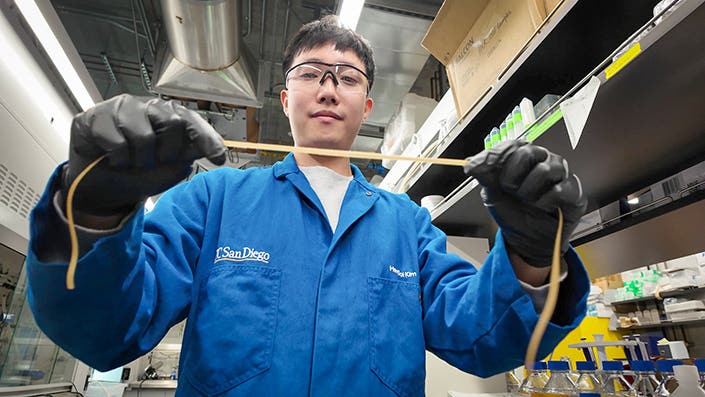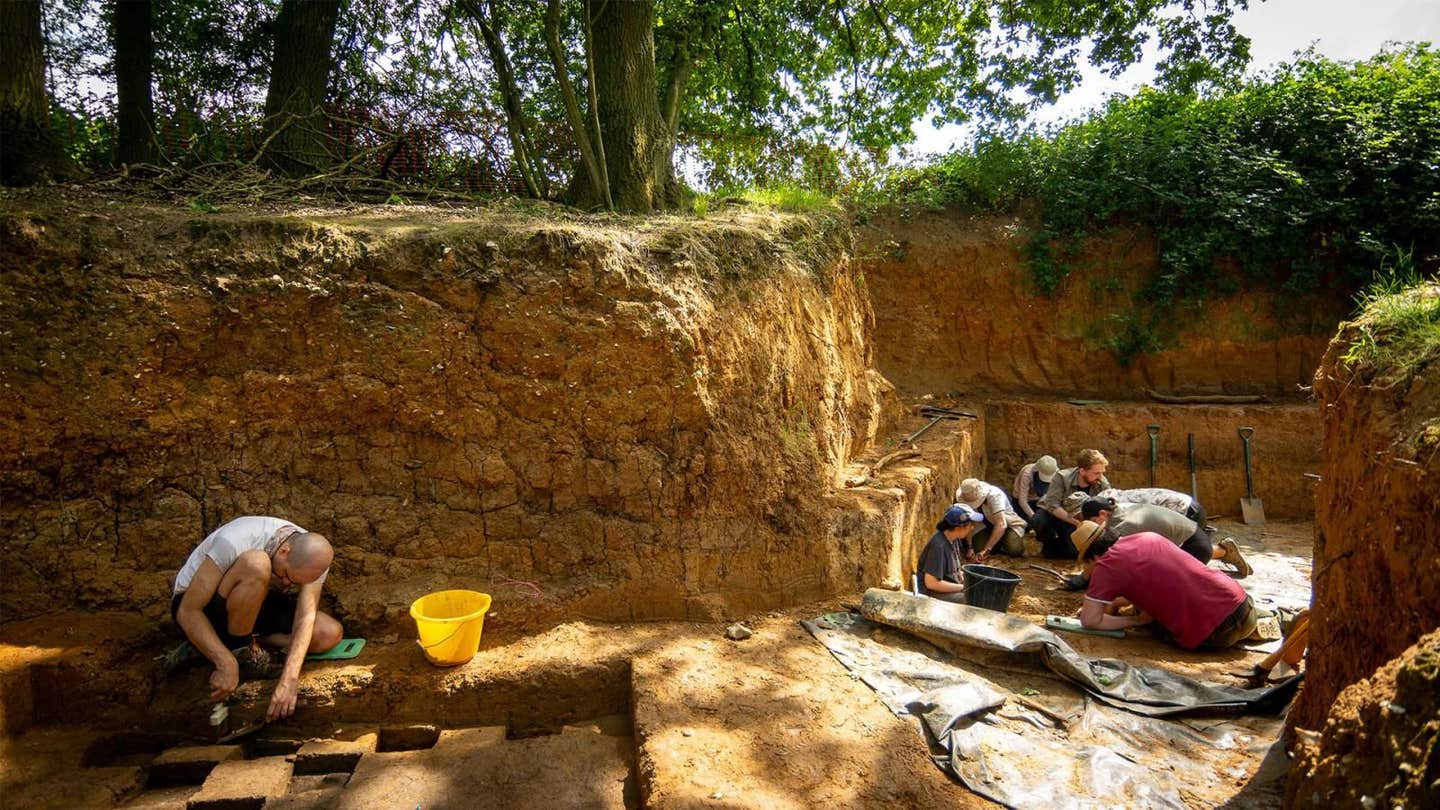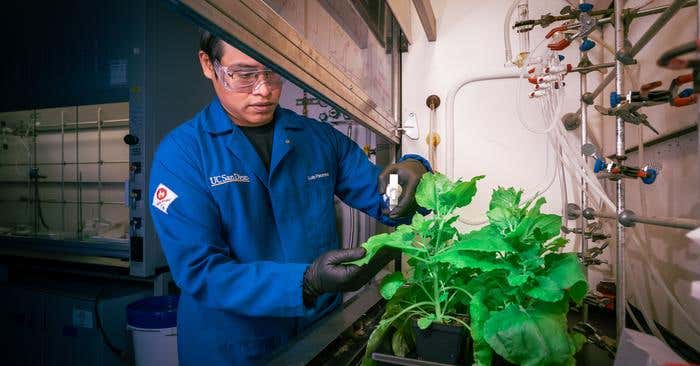Eco-friendly plastic: Game-changing new material biodegrades in just five months
Plastic pollution is one of the most pressing environmental challenges of our time. New UCSD innovation offers a beacon of hope.

Plastic pollution is one of the most pressing environmental challenges of our time. However, a groundbreaking innovation led by researchers from the University of California, San Diego, offers a beacon of hope.
They have developed a new type of bioplastic, a biodegradable thermoplastic polyurethane (TPU), which could significantly reduce the environmental impact of the plastic industry. TPU is a common material used in products like footwear, floor mats, cushions, and memory foam due to its durability and flexibility.
Bacterial Spores: The Key to Biodegradability
The secret to this new bioplastic lies in the integration of bacterial spores from a specific strain of Bacillus subtilis. These spores are embedded within the TPU matrix, and under the right conditions, they can break down the plastic. When the bioplastic is discarded and exposed to the nutrients present in compost, these spores germinate and initiate the degradation process, turning the plastic into harmless by-products.
“It’s an inherent property of these bacteria,” said Jon Pokorski, a nanoengineering professor at UC San Diego and a co-senior author of the study published in Nature Communications. “We took a few strains and evaluated their ability to use TPUs as a sole carbon source, then picked the one that grew the best.”
The use of bacterial spores is crucial because they are highly resistant to extreme environmental conditions. Unlike fungal spores, which primarily serve a reproductive function, bacterial spores have a protective protein layer that allows them to survive in a dormant state until they encounter favorable conditions to become active again.
To create this innovative material, the researchers combined Bacillus subtilis spores with TPU pellets using a plastic extruder. This machine mixed and melted the components at 135 degrees Celsius, forming thin strips of the new bioplastic.
Related Stories
To test its biodegradability, these strips were placed in compost environments—one microbially active and the other sterile. The compost was kept at 37 degrees Celsius with a relative humidity of 44-55%. Remarkably, within five months, the bioplastic achieved 90% degradation even in the sterile compost, which lacked additional microbial action.
“What’s remarkable is that our material breaks down even without the presence of additional microbes,” Pokorski noted. “Chances are, most of these plastics will likely not end up in microbially rich composting facilities. So this ability to self-degrade in a microbe-free environment makes our technology more versatile.”
This self-degrading property is a significant advantage, as it suggests that the bioplastic could break down in a wider range of environments, not just in specially managed compost facilities.
While the researchers are still studying what remains after the bioplastic degrades, they are optimistic. Bacillus subtilis is generally considered safe for humans and animals, and it is commonly found in probiotics. It's also known to benefit plant health, suggesting any residual spores are likely harmless.
To enable the spores to withstand the high temperatures of TPU production, the researchers used a process called adaptive laboratory evolution. This involved repeatedly exposing the spores to extreme temperatures and selecting the ones that survived. Over time, this method yielded a strain of bacteria robust enough to tolerate the extrusion process.
“We continually evolved the cells over and over again until we arrived at a strain that is optimized to tolerate the heat,” said Adam Feist, a bioengineering research scientist at UC San Diego and co-senior author of the study. “It’s amazing how well this process of bacterial evolution and selection worked for this purpose.”
Beyond their role in biodegradability, these bacterial spores also enhance the mechanical properties of the TPU. They act like reinforcing agents, similar to how steel rebar strengthens concrete. The result is a TPU variant that is not only biodegradable but also stronger and more stretchable.
“Both of these properties are greatly improved just by adding the spores,” Pokorski explained. “This is great because the addition of spores pushes the mechanical properties beyond known limitations where there was previously a trade-off between tensile strength and stretchability.”
Scaling Up and Future Directions
Currently, the team is focusing on producing small-scale quantities of this bioplastic in the lab to refine the process and prove its feasibility. However, their ultimate goal is to scale up production to industrial levels. This involves producing the material in larger quantities, speeding up the degradation process, and applying the technology to other types of plastics beyond TPU.
“There are many different kinds of commercial plastics that end up in the environment—TPU is just one of them,” Feist said. “One of our next steps is to broaden the scope of biodegradable materials we can make with this technology.”
As the world grapples with the environmental consequences of plastic waste, innovations like this biodegradable TPU offer a promising path forward. By harnessing the natural abilities of bacteria, scientists are developing materials that could help reduce our reliance on traditional plastics and pave the way for a more sustainable future.
For more environmental news stories check out our Green Impact section at The Brighter Side of News.
Note: Materials provided above by The Brighter Side of News. Content may be edited for style and length.
Like these kind of feel good stories? Get the Brighter Side of News' newsletter.



